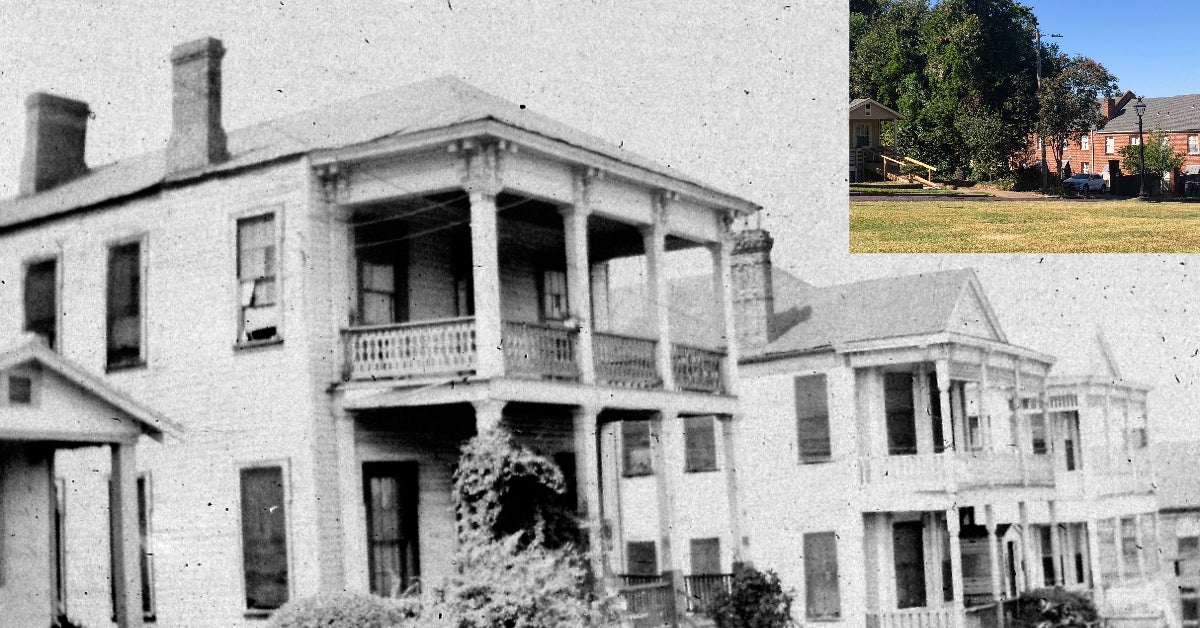LOOKING BACK: Jackson Street homes of yesteryear
Published 8:00 am Wednesday, October 4, 2023

- 1: The 800 block of Jackson Street in Vicksburg was once the site of three homes with a long history. (Photo Submitted) 2: Today, the 800 block of Jackson Street no longer has the three historic homes at street numbers 800, 804 and 808. (Photo Submitted)
David Mayer’s house was built before 1877 with the second story of the full-width porch added between 1892 and 1897. Mayer was born in Herxheim, Germany, and came to New York as a young man where he married Babette Adler. They moved to Mississippi shortly before the Civil War and then to Vicksburg in 1866. At one time he was one of the largest planters in the state, owning Mount Level Plantation in Issaquena County. In 1870, he purchased Gipson’s Landing in that county, a port on the Mississippi River used for shipping cotton. A year later he founded the town of Mayersville there and then in 1872, the Mississippi Legislature established the town as the county seat. Mayer donated the grounds for the public square and built the courthouse.
Mayer was not only a planter but owned mercantile stores in Vicksburg and was a cotton buyer. He was a member of the Knights of Pythias, Masons, United Workmen, Free Sons of Israel, the B’nai B’rith Club and the Knights of Honor. He was a Confederate veteran, fighting with the 10th Mississippi Rifles from Jackson. He died on May 15, 1908, having suffered a heart attack while sitting on the front porch of his house. Babette passed away a few short months earlier on Nov. 14, 1907. W.E. Mollison, a prominent Black Vicksburg lawyer, told the Vicksburg Herald that Mayer was one of the hardest working and honest people that he had ever met and that “his generosity to those in distress was unbounded. He knew no creed nor color when human want stretched forth its hands.”
The paper reported that Mayer’s estate was in excess of $250,000 and included realty, government bonds, stocks, cash and life insurance and that it would be equally divided between his three children: Oscar, Ophelia (Mauss) and Esther (Lehman). In 1909, Oscar sold his interest in the real estate to his sisters and Esther, estranged from her husband, moved into the family home at 808 Jackson St. Ophelia died in 1910 at the age of 37, leaving a daughter. Esther died on Nov. 2, 1914, outliving her brother by a year.
She left a hand-written will that left her real estate (two office buildings and seven houses) and most of her personal property to her niece and bequeathed to her husband only those things that he had bought her during their marriage. Eugene Mauss, a lawyer in Memphis, contested the will and a judge sided with him because the handwritten will, while in her handwriting, was not signed.
The three houses continued to be residential rental property until 1934 when all three were rented by the Mississippi Transient Bureau, the state’s branch of the federal Transient Bureau. This Work’s Progress Administration program was a move to “handle the transient or ‘drifting’ population to give direct relief including food and bed and necessary work clothing, then put them to work on purely public property.”
The director of Mississippi’s Bureau, The Rev. Dr. D.A. McCall, informed the Clarion Ledger that “this project will not even remotely conflict with local labor problems or work, as all work will be done on public property. While the drifter is halted temporarily here, the case workers at the division will study each individual, make an effort to get in touch with home folks, seek to encourage him to return to his place of legal residence, try to secure the help of people at his home in aiding him to secure employment or try to place him in touch with work in which he is fitted.”
The houses at 800 and 808 Jackson St. were used as men’s dormitories and 804 Jackson St. was used as a mess hall and infirmary. At the program’s end, the houses were once again residential rental property. The buildings were demolished in the 1970s.





